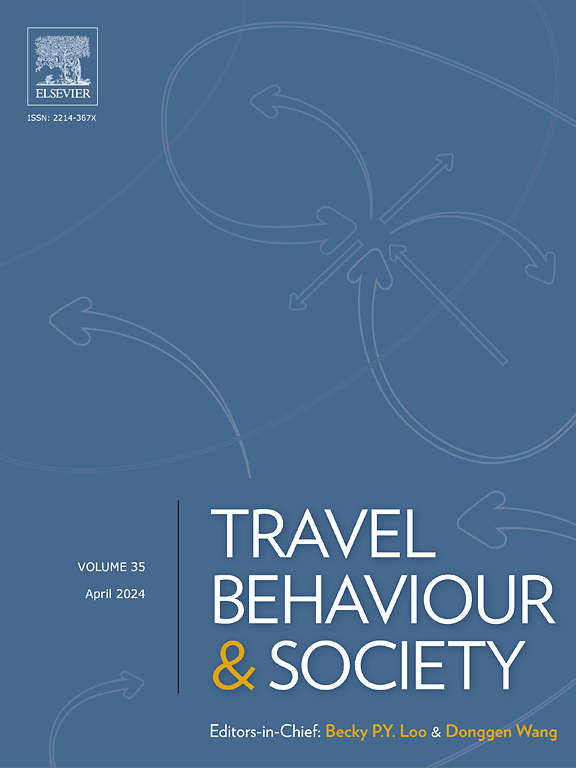气候变化引发的洪水破坏了中国城市间的交通:一个国家尺度的评估
IF 5.7
2区 工程技术
Q1 TRANSPORTATION
引用次数: 0
摘要
气候变化引发的洪水对城际交通构成日益严重的威胁,破坏了国家交通系统的可持续性和连通性。本研究开发了一个综合评估框架,结合大规模水动力洪水模拟、经验城际流动性数据和情景,量化中国各地洪水引起的交通中断。结果表明,在目前的条件下,道路故障和交通损失集中在基础设施稀疏和防洪不足的非城市地区。在未来的气候情景下,破坏的强度和空间格局都会发生变化。在中国东部和南部的城市群,由于其在交通网络中的中心地位和连锁脆弱性,流动性损失的增幅不成比例地大。此外,主要的破坏机制从间接的、与连通性相关的损失转变为直接的道路故障,进一步放大了整个系统的脆弱性。这些发现强调了极端气候加剧下城际交通脆弱性的关键转变,并为基础设施适应和促进公平的交通规划提供了空间差异化的见解。本文章由计算机程序翻译,如有差异,请以英文原文为准。
Climate change-induced floods disrupt intercity mobility in China: A national-scale assessment
Climate change-induced floods pose escalating threats to intercity mobility, undermining the sustainability and connectivity of national transport systems. This study develops an integrated assessment framework that combines large-scale hydrodynamic flood simulations, empirical intercity mobility data, and scenarios to quantify flood-induced transport disruptions across China. Results indicate that, under current conditions, road failures and mobility losses are concentrated in non-urban regions with sparse infrastructure and inadequate flood protection. Under future climate scenarios, both the intensity and spatial patterns of disruption shift. Urban agglomerations in eastern and southern China experience disproportionately large increases in mobility losses, driven by their centrality in the transport network and cascading vulnerabilities. Moreover, the dominant disruption mechanism shifts from indirect, connectivity-related losses to direct road failures, further amplifying system-wide fragility. These findings underscore a critical shift in intercity transport vulnerability under intensifying climate extremes and provide spatially differentiated insights to inform infrastructure adaptation and promote equitable transport planning.
求助全文
通过发布文献求助,成功后即可免费获取论文全文。
去求助
来源期刊

Travel Behaviour and Society
TRANSPORTATION-
CiteScore
9.80
自引率
7.70%
发文量
109
期刊介绍:
Travel Behaviour and Society is an interdisciplinary journal publishing high-quality original papers which report leading edge research in theories, methodologies and applications concerning transportation issues and challenges which involve the social and spatial dimensions. In particular, it provides a discussion forum for major research in travel behaviour, transportation infrastructure, transportation and environmental issues, mobility and social sustainability, transportation geographic information systems (TGIS), transportation and quality of life, transportation data collection and analysis, etc.
 求助内容:
求助内容: 应助结果提醒方式:
应助结果提醒方式:


